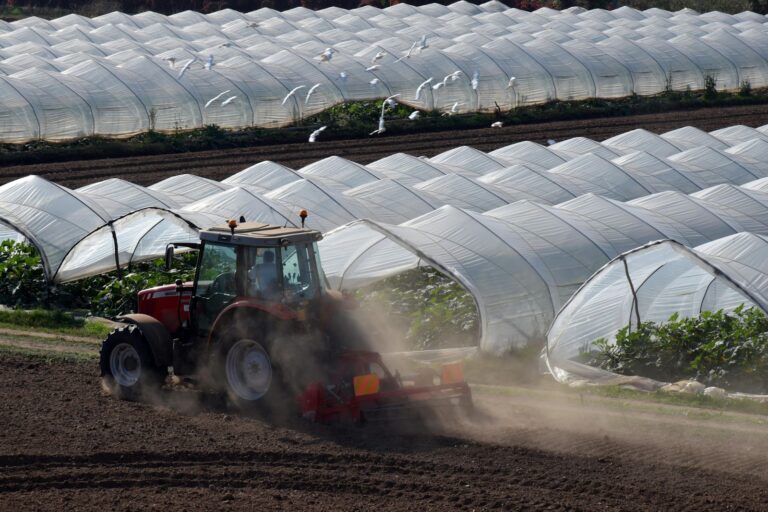With the climate crisis at the forefront of global discussions, businesses are being challenged to not only reduce their carbon footprint but also find sustainable solutions to their operations. One industry that has been particularly impacted is agriculture, with traditional farming practices contributing significantly to greenhouse gas emissions. In response, many businesses are turning towards greenhouses as a more environmentally friendly and efficient option for growing crops.
But beyond just being an eco-friendly choice, investing in greenhouses can bring numerous benefits to businesses. From increased crop yields and cost savings to improved sustainability and market appeal, there are compelling reasons for companies of all sizes to consider incorporating greenhouses into their operations.
Here are six benefits of investing in greenhouses that make a strong case for why businesses should take this step towards building a better, more sustainable future.
Increased Crop Yields
One of the most significant benefits of investing in greenhouses is the potential for increased crop yields. By creating a controlled environment, greenhouses allow for optimal growing conditions to be maintained year-round, regardless of external factors like weather or pests. This leads to healthier plants and higher quality crops, resulting in higher yields compared to traditional outdoor farming methods.
To ensure maximum productivity, greenhouses also offer the ability to tailor conditions such as temperature, humidity, and lighting to the specific needs of different crops. You can have commercial greenhouse construction done by experts to have it customized for your business needs and maximize crop yields. This can result in a more consistent and reliable supply of produce for businesses, leading to increased profitability.
Cost Savings
Investing in greenhouses can also bring significant cost savings for businesses. By controlling the environment, greenhouses eliminate the need for expensive resources such as irrigation and pesticides, which can be unpredictable and costly.
Additionally, greenhouses require less land compared to traditional farming methods, making them a more economical option for businesses with limited space.
Greenhouses also offer better protection against extreme weather conditions, such as heavy rainfall or droughts, which can damage crops and result in financial losses. With a more controlled growing environment, businesses can reduce their risk of crop loss and save on potential expenses associated with replanting or purchasing new crops.
Improved Sustainability
As businesses face increasing pressure to reduce their environmental impact, investing in greenhouses can be a significant step towards improved sustainability. Greenhouses use less water and energy compared to traditional farming methods, making them more environmentally friendly. They also allow for the use of sustainable practices like organic farming, reducing the need for harmful pesticides and fertilizers that can harm the environment.
Furthermore, greenhouses offer a more efficient use of resources, such as nutrients and space, resulting in less waste and pollution. By incorporating greenhouses into their operations, businesses can demonstrate their commitment to sustainability while also contributing to global efforts towards a greener future.
Market Appeal
With consumers becoming more conscious of their environmental footprint, businesses that invest in greenhouses can tap into a growing market for sustainable and locally sourced produce. By highlighting their use of eco-friendly practices, companies can attract environmentally conscious consumers who are willing to pay a premium for products that align with their values.
Moreover, investing in greenhouses can also open up new markets for businesses, such as supplying produce year-round or expanding into niche markets for specialty crops. This diversification of products and customer bases can lead to increased profitability and resilience against changing market conditions.
Year-Round Production
One of the significant advantages of greenhouses is their ability to provide year-round production, regardless of seasonal variations or external factors. This provides businesses with a more consistent and reliable supply of produce, reducing the risk of shortages or price fluctuations.
Additionally, greenhouses also offer the opportunity for businesses to experiment with new crops or varieties that may not be feasible in traditional outdoor farming methods due to limited growing seasons. This can lead to product innovation and differentiation, giving businesses a competitive edge in the market.
Pest and Disease Management
Greenhouses offer a more controlled environment that can help businesses better manage pests and diseases, which are major challenges in traditional farming. With the use of protective coverings, greenhouses provide a physical barrier against pests, reducing the need for harmful pesticides.
Moreover, greenhouses allow for the early detection and prevention of diseases through regular monitoring and management practices. This can significantly reduce crop losses and expenses associated with pest control measures. Investing in greenhouses can also be a more sustainable option for pest and disease management, as it minimizes the use of harmful chemicals that can harm the environment and human health.
Investing in greenhouses presents numerous benefits for businesses, from increased productivity and profitability to improved sustainability and market appeal. As climate change continues to impact agriculture, incorporating greenhouses into business operations is not only a smart decision but also a responsible one towards building a better future for all. So, considering these benefits, businesses should seriously consider investing in greenhouses as part of their long-term strategies for success.
